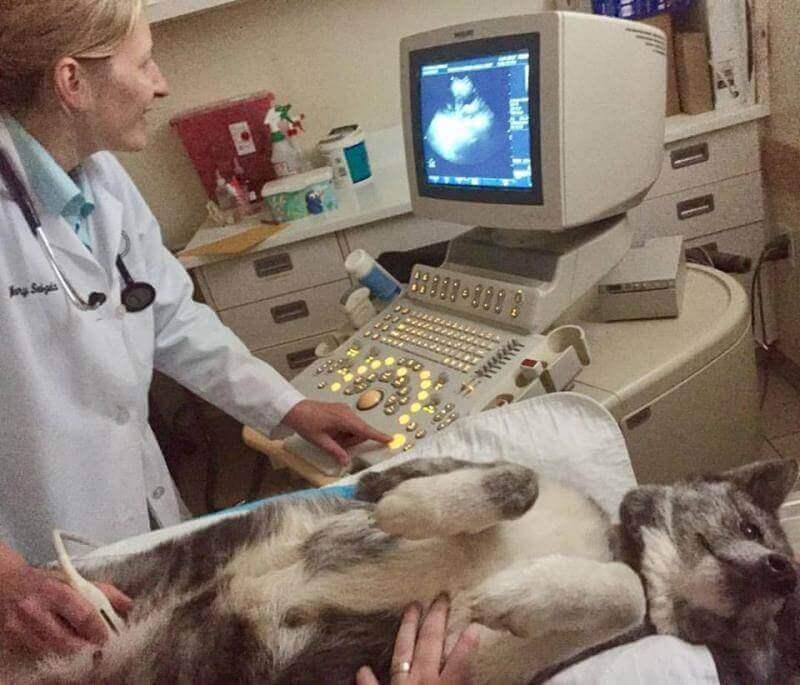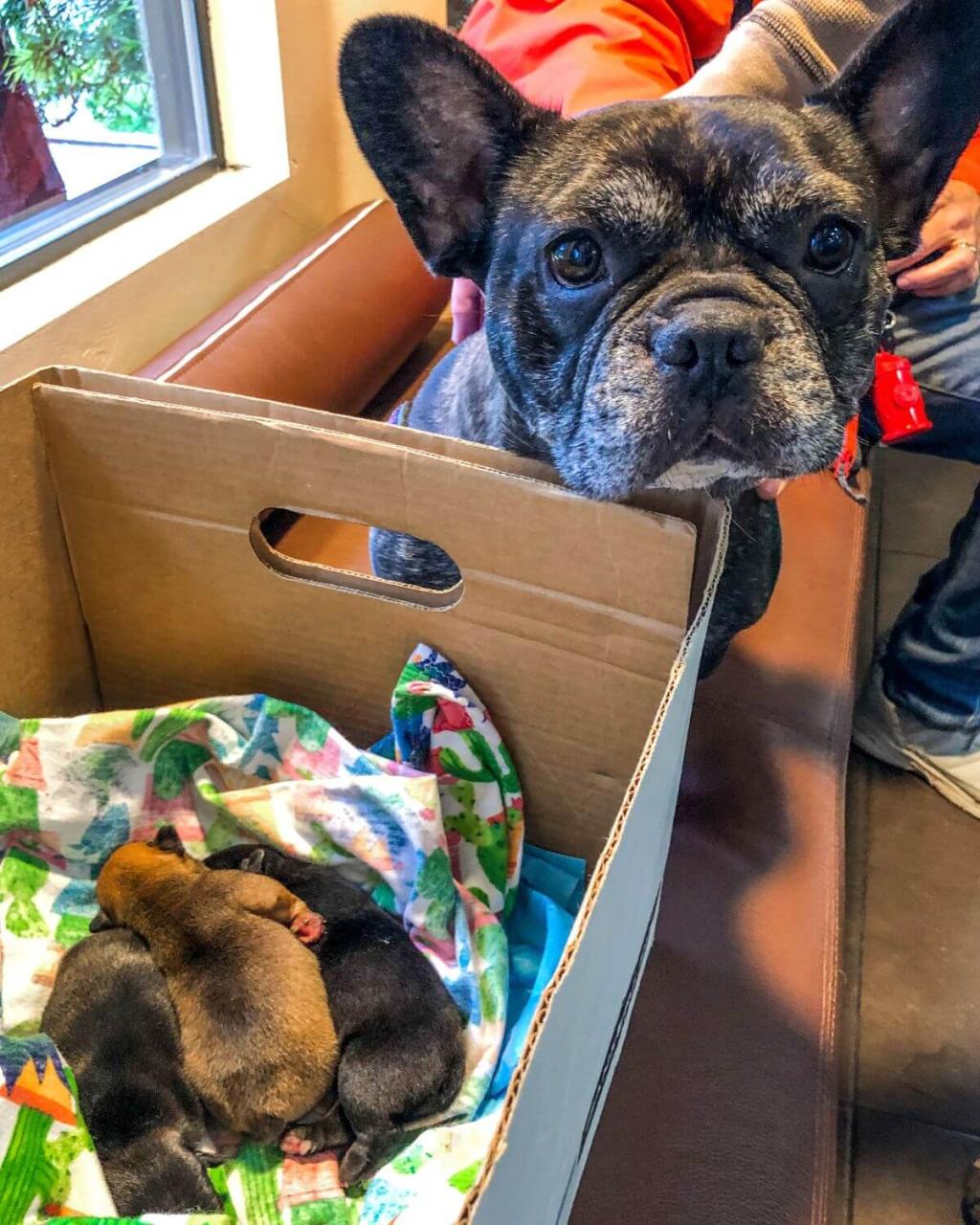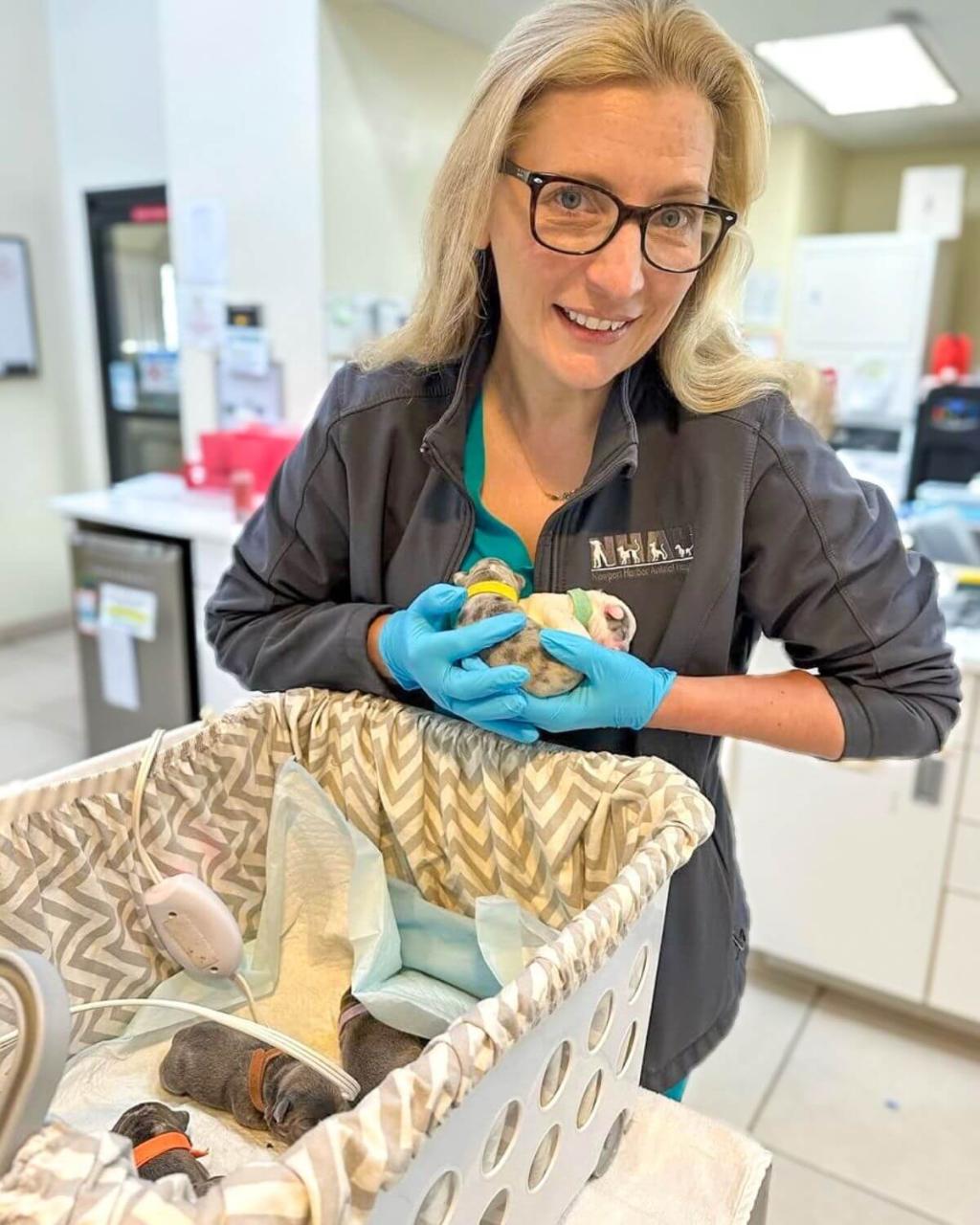
Newport Harbor Animal Hospital's Dog Pregnancy and Reproduction Services
At Newport Harbor Animal Hospital, our reproductive team understands the commitment involved in helping facilitate a dog pregnancy for your beloved canine companion. We have very specific standards for assisted canine reproduction and only work with breeders exhibiting quality breeding practices.
Our dog reproductive and pregnancy services include:
- Dog breeding soundness exams
- Semen collection and evaluation
- Shipping fresh chilled semen
- Transcervical/Surgical artificial insemination of fresh, chilled, and frozen semen
- Progesterone testing for ovulation timing
- Caesarean Sections
- Semen Freezing
- Infertility Evaluation
- Ultrasonography for Pregnancy Diagnosis or evaluation of the reproductive organs (in cases of infertility)
- High-Risk Pregnancies
Our services also include management of:
- Prostate Diseases
- Uterine, Vaginal and Mammary Diseases
- Treatment for Pyometra
- Testicular (epidydymal) harvest of sperm
- Alternatives to traditional spay/neuter for fertility control
Getting Your Bitch Pregnant
In this modern era, technological and scientific advances in reproductive medicine have resulted in the ability for a dog pregnancy to occur through the use of artificial insemination, as well as other assisted methods. Typically these methods of breeding are utilized by professional dog breeders, however our services are available to any dog owner who wants to keep their dog's bloodline going and has been unable to do so naturally.
Infertility
Infertility issues can arise for a number of reasons and can affect dogs of all ages, but tend to be more common among older dogs. For example, uterine cysts, which can cause infertility in female dogs, are more common among dogs 6 years of age and older. Preexisting medical conditions including uterine infections can also lead to dog fertility issues, specifically regarding implantation.
One of the most common causes of bitch fertility issues is breeding or insemination during the improper time in the female's estrous cycle or in layman's terms, when the bitch is not fully in heat. Unlike other fertility issues, monitoring a bitch's heat cycle, and allowing for mating only during her most fertile period, can overcome this situation.
Certain dog breeds are predisposed to thyroid insufficiency and therefore have a higher prevalence of dog fertility issues.
Breeds that are at particular risk of hypothyroidism include:
- Boxers
- Doberman Pinschers
- Dachshunds
- Golden Retrievers
- Great Danes
- Irish Setters
- Miniature Schnauzers
- Poodles
At Newport Harbor Animal Hospital, our team evaluates every aspect of your dog’s reproductive health to improve breeding success. Beyond general wellness and timing, several medical conditions may also impact fertility.
Other conditions that may play a role in dog breeding include:
- Male infertility factors like low semen count
- Subclinical uterine infections
- Brucella canis
- Canine Herpesvirus
- Toxoplasmosis infection
- Hyperadrenocorticism
- Abnormal ovarian function
- Chromosomal abnormality
- Systemic viral or protozoal infection
- Lack of sufficient copulatory stimulus in order to induce ovulation
Canine Semen Collection
Canine semen collection is performed for the purpose of canine breeding soundness exams, as well as for artificial insemination. Canine semen collected for insemination can be used fresh, or can be cooled and shipped to another location. Canine semen that has been collected can also be frozen, allowing long-term storage. Another reason for canine semen collection is to obtain prostatic fluid for culture or cytology to diagnose suspected prostatic disease. We use Zoetis for long-term semen storage. If you have further questions about canine semen collection, our veterinarians can answer your questions at your next appointment.
Artificial Insemination For Dogs
Artificial insemination for dogs begins with analyzing the collected sperm cells to ensure that they are sufficiently concentrated, adequately motile, and that they appear anatomically normal. This is done because many 'sterile' males still produce sperm cells, but their quality or quantity is very low. Infertile males may have abnormal sperm cells, which are unable to travel all the way to the oviducts of the female, or cannot penetrate the ovum for fertilization to occur, or have DNA which does not lead to an embryo.
If the sperm cells appear to be adequate and normal, the female dog may be immediately inseminated using a long plastic tubeor catheterization of the cervix using an endoscope to facilitate dog breeding. Attempts are made to at least reach the level of her cervix, which in large dogs may be several inches inside the animal.
If doing transcervical insemination using the endoscope, semen can be placed directly in the uterus. If breeding is not taking place immediately, the semen may either be chilled or frozen. Chilled semen should be used within a 72 hour window beginning from collection, and frozen semen can be stored for years after it is initially frozen. It is not abnormal for owners to freeze semen from a prized dog, in order to facilitate artificial insemination for dog breeding years after a male dog has passed away.
Dog Pregnancy Care
A dog pregnancy is one of the most amazing, yet vulnerable times for a female dog as well as her unborn puppies. Therefore, it is essential to provide proper care during the prenatal period. First and foremost before allowing a dog pregnancy, make sure you have properly protected your female dog and her potential litter by following these steps:

- Most veterinarians advise against vaccinating pregnant dogs, so dogs should be vaccinated well before pregnancy occurs
- Get your dog dewormed. Intestinal parasites (such as roundworms and hookworms) can pass from a mother to her puppies. Your dog's veterinarian will prescribe an appropriate medication that will protect both your dog and her puppies from these parasites
- Have a heartworm test performed, and start an appropriate heartworm prevention protocol if recommended by your vet.
- Discuss appropriate flea/tick/heartworm preventatives with your veterinarian before begining.
If you think your bitch may be pregnant, then it's time to plan a future appointment with your veterinarian to help you verify the pregnancy, determine the due date, discuss any medication changes, and even estimate the number of expected puppies. Your veterinarian can also help you determine if your dog is having a false pregnancy, a condition in which she looks and acts pregnant when she's not pregnant.
- Ultrasound machines can visualize puppy fetuses approximately 4 weeks (28 days) into the pregnancy. Unborn puppies can be seen on x-rays after 50 days into the pregnancy.
Your veterinarian at Newport Harbor Animal Hospital will help guide you through each stage of your dog’s pregnancy to keep both mom and puppies healthy. They may provide a detailed list of recommendations designed to support proper nutrition, safety, and comfort during this important time.
Item's to support your dog's pregnancy include:
- Feeding schedule
- Best Nutritional Choices
- Recommended Medications
- Prohibited Medications
- Exercise Recommendations
- Whelping Box/Puppy Dens
- Checkup/examination schedule for the duration of the dog pregnancy
Delivering Newborn Puppies
As your dog approaches labor, it’s natural to feel both excitement and concern. Taking the time to learn the signs of impending delivery and preparing her environment can greatly reduce stress and promote a smooth whelping process. The veterinarians at Newport Harbor Animal Hospital are always available to offer advice and support during this important time.
Signs your dog may be going into labor:

- She becomes restless, panting
- She stops eating up to 24 hours before labor
- Her temperature drops 1-2 degrees F 24 hours before labor
- She may paw at her bedding as if preparing a nest
- She starts licking her vulva
- She may discharge clear or green-black colored mucus
For the most part your dog will instinctively know what to do, so she should do most of the work. It is recommended that you provide a warm, comfortable and quiet space and have the following supplies on hand:
- Whelping box
- A laundry basket lined with a heating pad and a blanket
- A stack of clean towels
- Emergency Supplies such as sterile scissors, rubber gloves and supplies to tie off the umbilical cord if necessary
Schedule A Veterinary Appointment with us at Newport Harbor Animal Hospital today!
The health and wellness of the mother and her puppies is of paramount importance throughout the entire pregnancy. An expecting human mother would be ill advised to go about her pregnancy without the insight, assistance and expertise of a medical professional, and neither should your female dog.
Your dog deserves every chance to be healthy, happy litter of puppies. At Newport Harbor Animal Hospital we specialize in facilitating healthy dog pregnancies for mother and puppies alike. We feel like pets are truly part of the family and would be honored to guide your family through this exciting time.
Contact us to schedule a dog breeding consultation with Dr. Sebzda today!
If you live in or near Costa Mesa, CA, and are looking for pet care, contact us at (949) 612-2756 to set an appointment. You can also email us at [email protected]. Our staff would love to talk with you!
